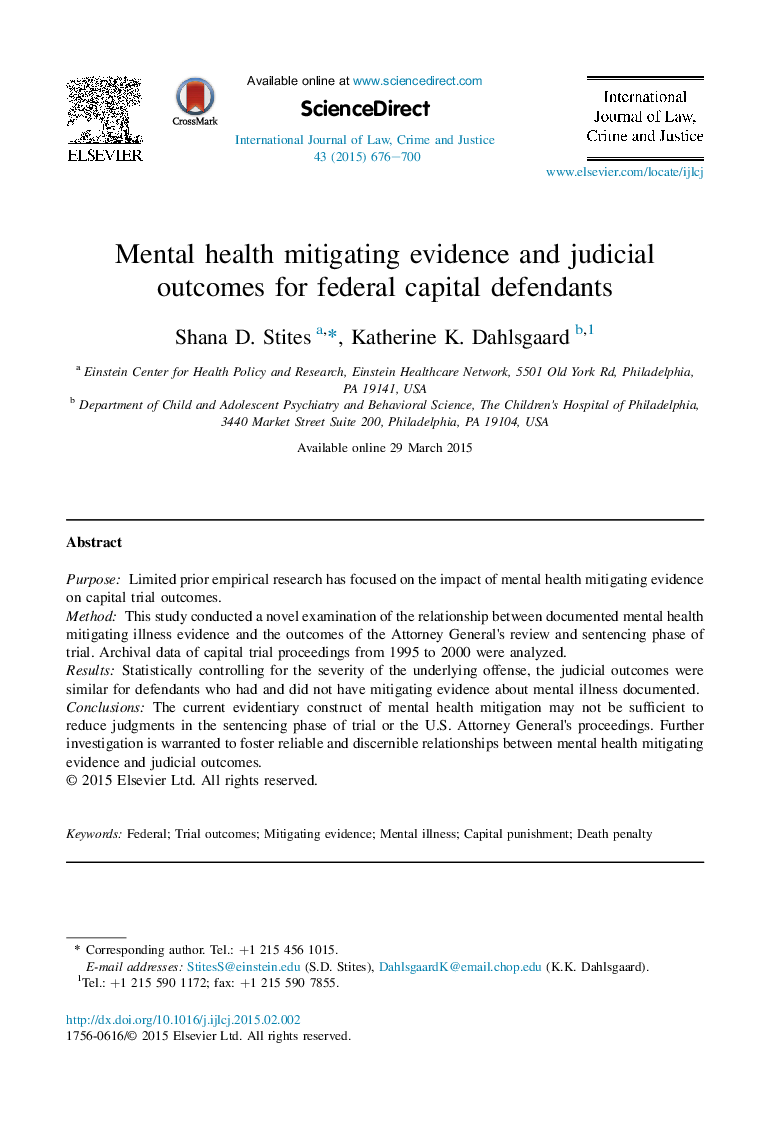| Article ID | Journal | Published Year | Pages | File Type |
|---|---|---|---|---|
| 1097880 | International Journal of Law, Crime and Justice | 2015 | 25 Pages |
•Defendants with mental illness were as likely as others to be prosecuted by jury trial.•Unlike other types of evidence, mental illness was not a predictor of legal outcomes.•Aggravating evidence appeared a key predictor of sentencing decisions.
PurposeLimited prior empirical research has focused on the impact of mental health mitigating evidence on capital trial outcomes.MethodThis study conducted a novel examination of the relationship between documented mental health mitigating illness evidence and the outcomes of the Attorney General's review and sentencing phase of trial. Archival data of capital trial proceedings from 1995 to 2000 were analyzed.ResultsStatistically controlling for the severity of the underlying offense, the judicial outcomes were similar for defendants who had and did not have mitigating evidence about mental illness documented.ConclusionsThe current evidentiary construct of mental health mitigation may not be sufficient to reduce judgments in the sentencing phase of trial or the U.S. Attorney General's proceedings. Further investigation is warranted to foster reliable and discernible relationships between mental health mitigating evidence and judicial outcomes.
